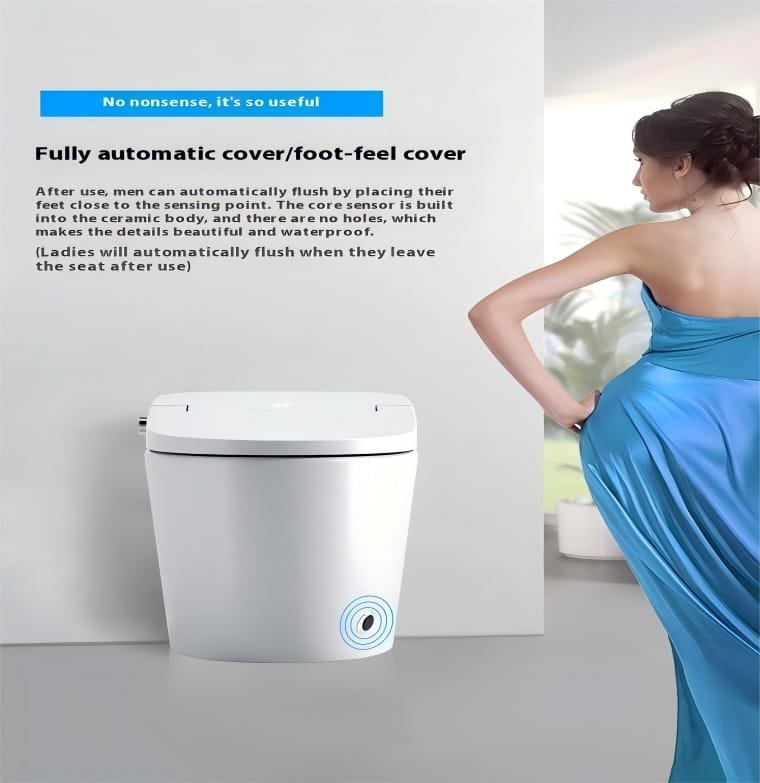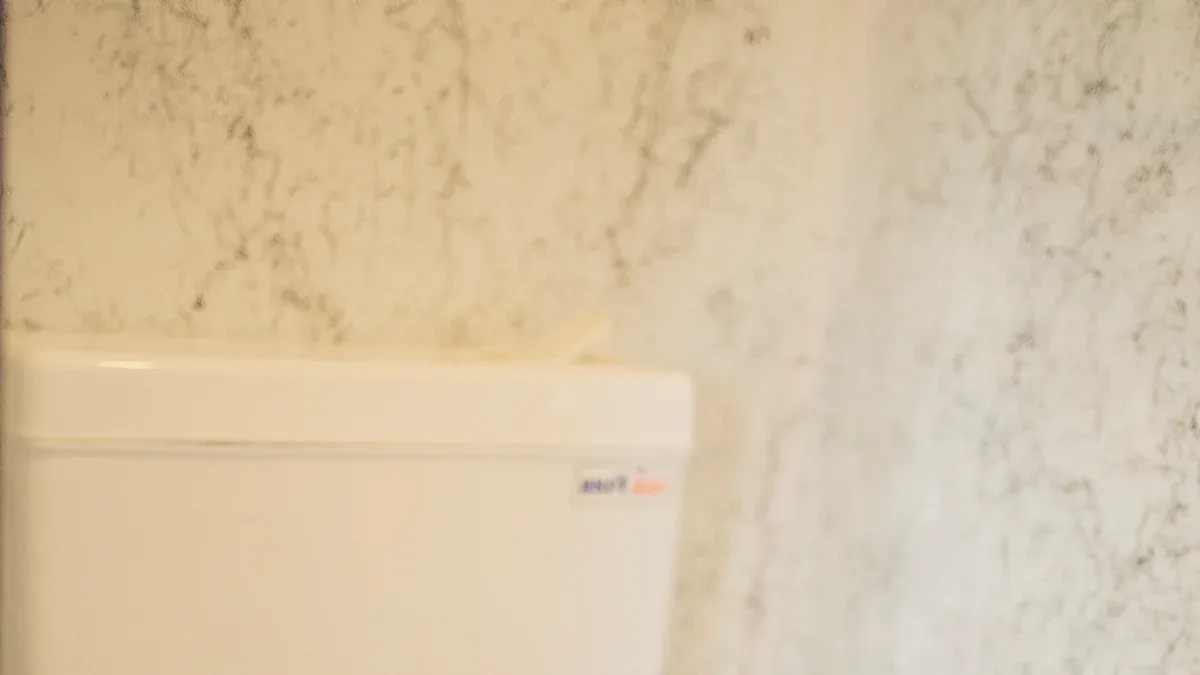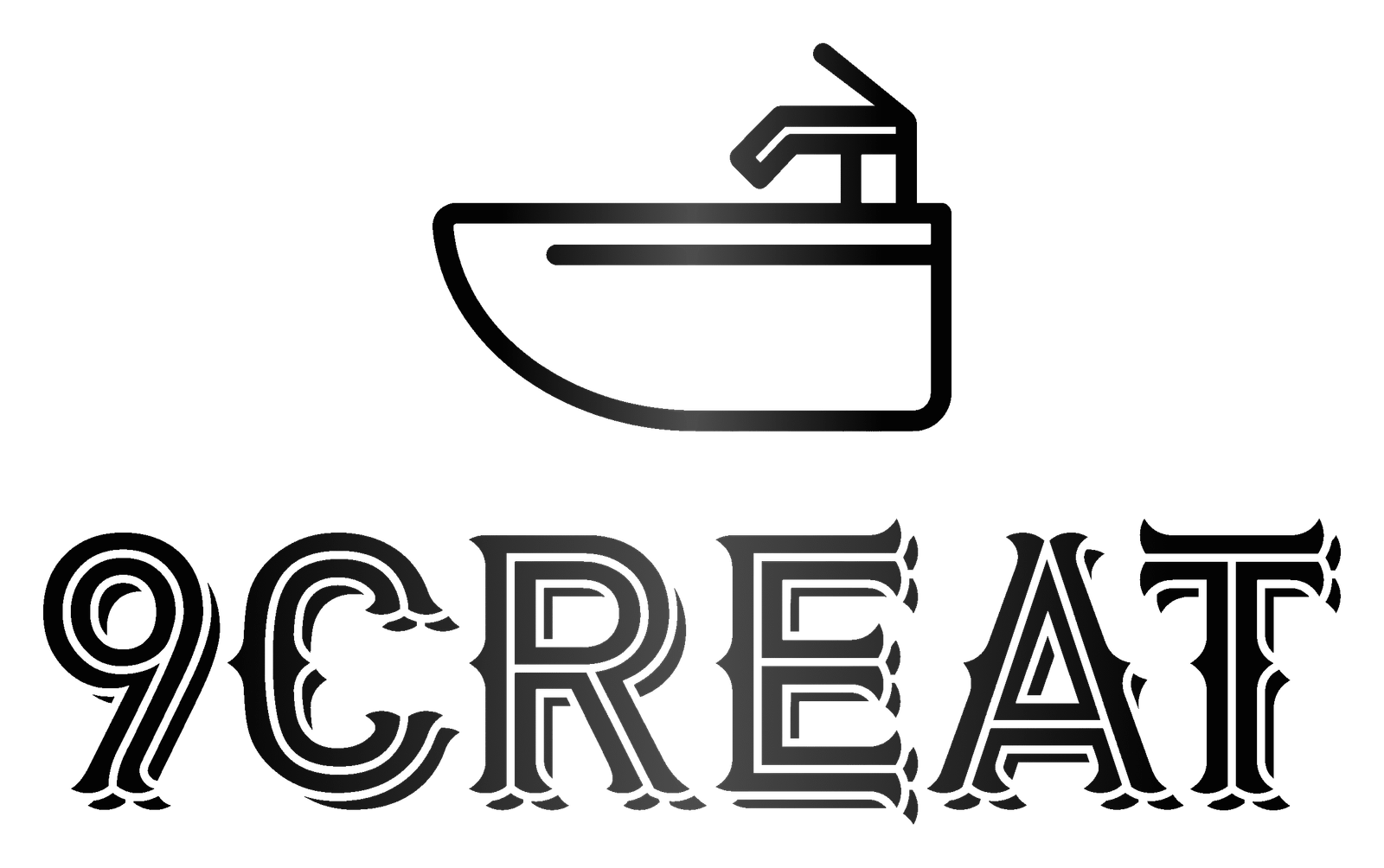The ceramic toilet market is growing fast. It is expected to be worth $39.19 billion in 2025, with an 8% yearly growth. This makes finding good suppliers very important. You need suppliers who can always provide great products. This helps meet demand and keeps customers happy.
China has big ceramic hubs like Chaozhou and Foshan. But finding reliable suppliers there can be hard. The market is huge and very competitive. Without careful research, you might face delays, bad products, or extra costs.
Picking the right China Ceramic Toilet Factory can save you trouble. It can also help your business succeed for a long time.
Key Takeaways
- Trustworthy suppliers provide good ceramic toilets, gaining customer trust and loyalty.
- Use different methods like checking certificates, going to trade shows, and reading reviews to find reliable suppliers.
- Always request product samples to check quality before big purchases.
- Agree on clear payment rules and know all costs to avoid budget problems.
- Visit factories or hire inspectors to check quality and safety standards.
Why Supplier Reliability is Important
Getting ceramic toilets from a reliable supplier is essential. A good supplier can help your business succeed. Let’s see why this matters.
How It Affects Quality and Strength
Good suppliers give you strong, high-quality toilets. Customers want products that last a long time. Selling toilets that break quickly can ruin trust.
Here’s why a reliable supplier helps your business:
- They provide toilets that meet or beat quality standards.
- Great quality makes your brand trustworthy and dependable.
- Fewer broken toilets mean fewer returns and less money wasted.
When your products work well, customers will return. This turns first-time buyers into loyal ones.
How It Impacts Costs and Profits
A dependable supplier can save you money. Strong toilets need fewer repairs, which helps your customers. Reliable suppliers also prevent delivery problems or bad products. These issues can cost you sales and money.
If your supply chain works smoothly, you can grow your business. You won’t waste time fixing problems.
How It Shapes Reputation and Customer Happiness
Your supplier’s reliability affects how people see your business. Delivering great products on time builds trust. But delays or bad products can hurt your reputation.
Here’s a quick look at how supplier reliability helps your business:
| Metric | What It Means | Why It Matters |
|---|---|---|
| Customer Retention Rate | Shows how many customers come back to buy again. | Proves your products are good and keep people coming back. |
| Order Fulfillment Rate | Tracks how many orders are delivered on time. | Ensures customers get their items fast, making them happy and loyal. |
In short, a reliable supplier keeps customers happy and loyal. This helps your business grow and succeed. Everyone benefits!
Key Strategies for Finding Reliable Suppliers
Finding a good ceramic toilet supplier can seem hard. But using smart strategies makes it much simpler. Let’s look at some easy ways to find trustworthy suppliers.
Checking Certifications and Standards
First, check if the supplier follows industry rules. Certifications like ISO 9001 or CE compliance mean they meet strict quality and safety rules. These act as proof that their products are reliable.
Ask for detailed papers like test reports and material details. This shows if they follow international standards. Suppliers who share this information are usually more honest. Compare certifications between suppliers to find the best one.
Visiting Trade Shows and Events
Trade shows are great for finding reliable suppliers. Events like the Canton Fair let you meet suppliers in person. You can see their products, ask questions, and even make deals.
At these events, you can check out many suppliers at once. Look for booths that are well-organized with helpful staff. Serious suppliers often invest in their displays. You can also talk to other buyers and learn from their tips.
Using Online Platforms like Alibaba
Websites like Alibaba make finding suppliers easier. You can search by ratings, certifications, and product types. Read reviews from other buyers to see if the supplier is reliable.
Pick suppliers with verified profiles to avoid problems. Many platforms offer trade assurance to protect your money and ensure quality. Talk to suppliers often to build trust and spot any issues early.
Pro Tip: Use a mix of these strategies for better results. For example, shortlist suppliers online, then meet them at trade shows to confirm their reliability.
Here’s how these strategies reduce common risks:
| Risk Factor | How to Avoid It | Industry Standard | MFBath Approach |
|---|---|---|---|
| Production Delays | Penalties for late delivery | 5% discount for delays > 2 weeks | 7% discount for delays > 1 week |
| Shipping Delays | Updates and tracking | Weekly updates | Daily updates with a logistics team |
| Quality Issues | Check products before shipping | Random sampling | Full quality check before shipment |
| Hidden Fees | Clear quotes with all costs listed | Itemized quote | No hidden charges, all-inclusive pricing |
| Payment Disputes | Use escrow or payment milestones | 50% upfront, 50% on delivery | Flexible terms with milestone payments |
By mixing research, visits, and online tools, you can find a supplier you trust.
Visiting Factories and Doing On-Site Checks
Going to a supplier’s factory is very helpful. You can see how they work and if they meet your needs. A factory check isn’t just a list of tasks. It shows how much the supplier cares about quality, safety, and fairness.
When you visit, you can check important things. Here are some key benefits of these checks:
| Benefit Type | What to Look For |
|---|---|
| Worker Benefits | Check work hours, holidays, health care, and worker insurance. |
| Social Responsibility | Look at labor rules, ethics, and fair treatment in the supply chain. |
| Safety Measures | Check machine safety, worker safety, and overall factory safety. |
| Factory Organization | See if the factory is clean and tools are well-arranged. |
| Quality Checks | Review raw materials, production steps, and quality control systems. |
By checking these areas, you can find problems early. For example, messy factories or unsafe machines may mean bigger issues. But a clean, organized factory shows they care about their work.
Ask questions during your visit. How do they check for quality? What do they do with broken products? These answers can show how reliable they are. Also, notice how workers are treated. Happy workers often make better products.
If you can’t visit, hire someone to check for you. They can inspect the factory and send you a report. This way, you still get the details you need.
In short, factory visits and audits help you choose wisely. They lower risks and build trust in your supplier.
Evaluating Product Quality
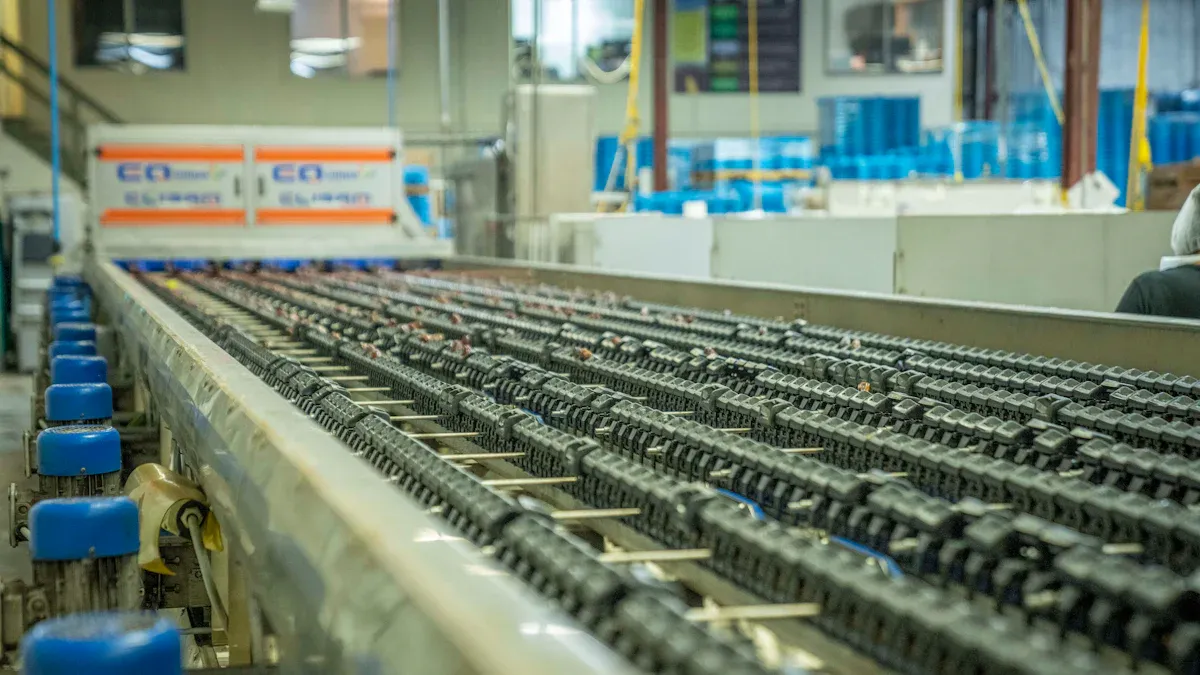
Asking for and Checking Product Samples
When buying ceramic toilets, always ask for samples. Samples help you check the quality yourself. Look at the surface, strength, and color. For example, check for tiny holes, cracks, or uneven colors. These problems can make the toilet look bad or work poorly.
Here’s a simple table of common issues and limits:
| Inspection Area | Common Problems | Allowed Limit | Effect on Use |
|---|---|---|---|
| Surface Finish | Tiny Holes, Cracks | Less than 2 per sq ft | Small |
| Structural Strength | Cracks, Chips | None Allowed | Big |
| Color Matching | Shade Differences | Less than 5% | Medium |
By checking these things, you can avoid bad surprises. This ensures the product meets your needs.
Verifying Certifications and Following Global Rules
Certifications are important for safety and quality. They show the supplier follows global rules. Look for certifications like ISO 9001 for quality or CE Marking for European standards. Others like LFGB, REACH, and RoHS ensure safety and eco-friendliness.
| Certification/Standard | What It Proves |
|---|---|
| LFGB Certification | Ensures materials are safe for food contact. |
| REACH Compliance | Confirms chemicals are safe for people and nature. |
| RoHS Compliance | Limits harmful materials in electronics to keep them safe. |
Always ask for proof of these certifications. Suppliers who share this info are usually more reliable.
Testing Durability and Performance
Testing shows if toilets can handle daily use. For example, the Toto Aquia IV toilet passed a fire test, proving its strength. Also, check if the toilet passes the 500-gram flush test for good performance.
Key things to test include water absorption, strength, and flushing power. Here’s a quick guide:
| Quality Check | How It’s Tested | Pass Criteria | Why It Matters |
|---|---|---|---|
| Water Absorption | Soak for 24 hours | ≤0.5% for strong material | Affects how long it lasts |
| Strength | Test with heavy weight | 400kgs for toilets | Ensures safety |
| Flushing Power | Test with objects | Clears in one flush | Ensures it works well |
Testing these things ensures the toilets are strong and work well. If you can, do extra tests like quick flushes or weight checks. This helps you deliver great products to your buyers.
Negotiating Terms and Pricing
Knowing Minimum Order Quantities (MOQs)
When buying from ceramic toilet suppliers, you’ll hear about MOQs. This is the smallest number of items a supplier will sell in one order. Knowing MOQs helps you plan your money and stock.
Suppliers set MOQs to cover their costs. For example, a factory might need you to buy 500 toilets to make a profit. If you run a small business, this might seem like too much. But don’t worry—some suppliers can adjust. You might get a lower MOQ if you pay a bit more per item.
Always ask about MOQs early. This avoids surprises and ensures the supplier fits your needs.
Checking Prices and Hidden Costs
The price tag isn’t the whole story. You need to check all costs to know the real price. Things like material quality, how hard it is to make, and shipping can change the total cost.
Here’s how these factors affect your spending:
| Factor | How It Affects Cost |
|---|---|
| Material Quality | Better materials cost 15-25% more but last longer |
| Manufacturing Complexity | Special features make prices go up |
| Shipping Logistics | Local shipping adds 5-10%, while international adds 15-30% of the product price |
| Hidden Costs | Extra fees like customs or storage can add 15-25% to your total |
Hidden fees, like customs or storage, can surprise you. Always ask for a detailed price list. This helps you plan and avoid unexpected charges.
Easy Tips for Negotiating with Suppliers
Talking with suppliers doesn’t have to be scary. Start by being friendly and clear about what you need. Suppliers will work with you more if they see you as a long-term customer.
Here are some simple tips to help you negotiate:
- Learn the market: Check prices so you know what’s fair.
- Be upfront: Share your budget, timeline, and quality needs early.
- Offer something back: If you want a discount, offer to buy more or sign a longer deal.
Negotiation works both ways. The goal is to find a deal that helps both you and the supplier. With the right attitude, you can get better deals and build trust.
Ensuring Logistics and Delivery Efficiency
When buying ceramic toilets, shipping is very important. Good shipping ensures your products arrive safely and on time. Let’s see how to make this process easier.
Picking the Best Shipping Options and Partners
Choosing the right shipping method is key. Air shipping is quick but costs more. Sea shipping is cheaper for large orders but slower. Think about speed and cost to decide what fits your needs.
A reliable shipping company is also important. Pick one with good reviews and experience handling fragile items like ceramic toilets. Ask for references and check their history. A good partner will also give tracking updates, so you know where your items are.
Pro Tip: Always ask about shipping insurance. It protects you if items get damaged.
Making Clear Payment Agreements
Clear payment rules stop confusion. Talk about these points with your supplier early:
- Payment Schedule: Will you pay all at once or in parts?
- Currency: Agree on the currency to avoid surprises.
- Payment Method: Use safe options like wire transfers or escrow.
Write everything down in a contract. This makes sure both sides follow the agreement.
Tips to Prevent Delays and Problems
Delays can cause big issues. To avoid them, plan ahead and stay in touch. Here are some tips:
- Order Early: Give enough time for making and shipping products.
- Track Shipments: Use tracking tools to check progress.
- Have Backups: Work with extra suppliers or shippers for emergencies.
By planning well, you can keep your business running smoothly and your customers happy.
After-Sales Support and Warranties
Why Warranties Matter for Ceramic Toilets
Warranties are like a safety promise for buyers. When you buy ceramic toilets, a good warranty protects you from surprises. Imagine a customer finds a crack in their toilet weeks later. Without a warranty, they’d pay for a new one. With a warranty, the issue is covered.
Long warranties also make people feel secure. For example, 98% of buyers with long warranties feel safer about their purchase. Also, 93% say they’re happy with the service. Knowing you won’t need to spend more if something breaks is a big relief.
Here’s how warranties affect customer happiness:
| Metric | Satisfaction Level |
|---|---|
| Product Quality | 79.3% |
| Support Services | 64.2% |
| Long-term Guarantee Satisfaction | 93% |
Offering warranties shows you care about quality. It builds trust and keeps customers loyal.
Checking Supplier Help and Customer Service
A helpful supplier can solve problems quickly. Fast replies and good solutions show they care about your business. But how can you check their service?
One way is to look at their service ratings. For example, tools like the Analytical Hierarchy Process (AHP) can measure supplier performance. Suppliers who reply fast and solve problems well stand out.
When picking a supplier, ask these questions:
- How fast do they reply to messages?
- Do they offer help anytime, even at night?
- Are their solutions useful and quick?
Suppliers who answer fast and fix issues easily will save you time.
Solving Problems and Returns the Right Way
Problems and returns happen, but handling them well is key. A clear return policy avoids confusion. Make sure your supplier has simple rules for returns and replacements.
If there’s a problem, stay calm and focus on fixing it. Ask for proof, like photos, to understand what went wrong. Then, work with the supplier to solve it fairly.
Good suppliers admit mistakes and fix them. They’ll offer refunds, repairs, or replacements without arguing. This support makes your partnership stronger and keeps customers happy.
Tip: Always keep records of talks and deals with your supplier. It helps solve problems faster and avoids mix-ups.
Sustainability and Innovation
Eco-friendly Practices in Ceramic Toilet Manufacturing
Caring for the planet is now a must, not a choice. Many ceramic toilet makers are finding new ways to be eco-friendly. They focus on cutting waste and saving energy.
For example:
- Kohler’s WasteLAB turns trash into useful items like tiles. This helps reduce garbage in landfills.
- They also design products with the environment in mind, making sustainability a priority.
- Kohler shares Environmental Product Declarations (EPDs) and Declare labels. These explain how their products affect the environment.
TOTO is another company leading in green practices:
- They aim to lower energy use and carbon emissions, planning to be carbon-neutral by 2050.
- Their zero-waste rule means nothing is thrown away at their factories.
- At their Morrow plant, TOTO USA uses over 100% renewable energy, showing their commitment to the planet.
Choosing suppliers like these means you’re helping the Earth while buying quality toilets.
Technological Advancements in Modern Toilet Designs
Technology is making toilets smarter and easier to use. New features are improving how they work and save resources.
Modern toilets now have dual-flush systems. These let you pick a small or big flush, saving water every day. Some even clean themselves using UV light or special water to kill germs.
Smart toilets are becoming more common too. They have heated seats, motion sensors, and even voice controls. Imagine a toilet that adjusts to your needs automatically. These upgrades make toilets more comfortable and save water and energy.
Partnering with Suppliers Committed to Sustainability
Working with green suppliers helps your business and the planet. Look for companies that focus on eco-friendly methods and new ideas.
Ask about their green goals. Do they recycle? Are they cutting carbon emissions? Suppliers like Kohler and TOTO lead the way with clear policies and big goals.
Teaming up with such suppliers shows customers you care about the environment. It also keeps you ahead in a market where being eco-friendly is very important.
Tip: Always check for certifications like EPDs or green energy reports. These prove a supplier is serious about sustainability.
Exploring China Ceramic Toilet Factory Regions
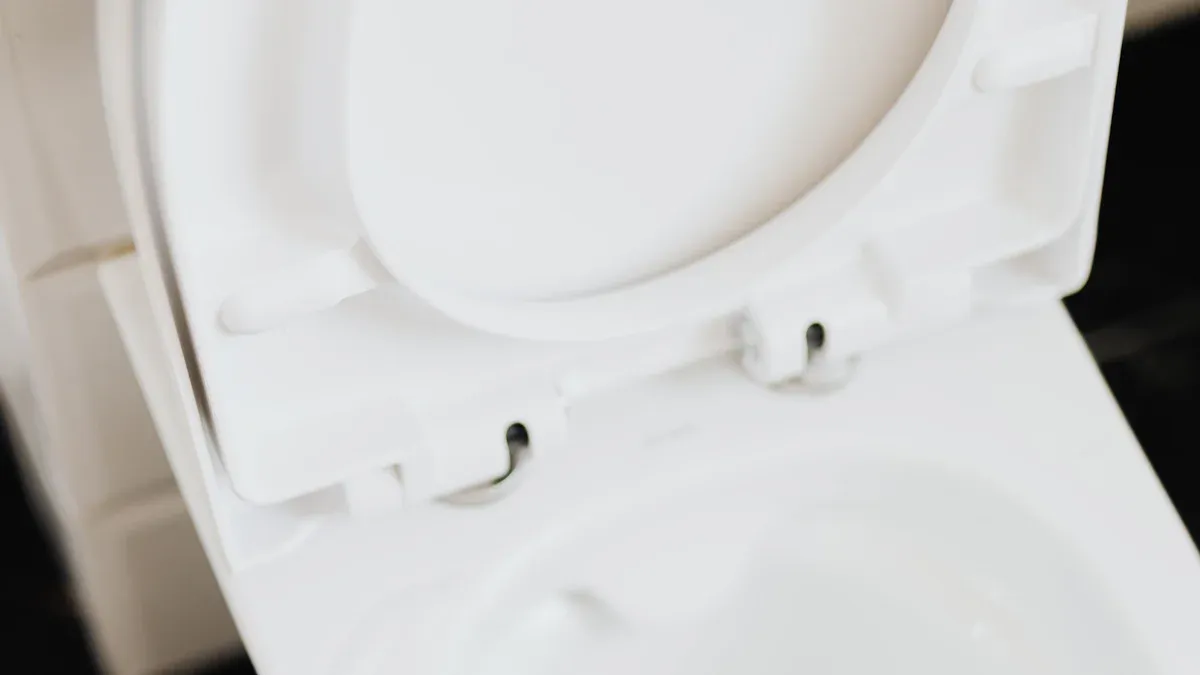
Important areas for ceramic production in China
China has many regions that make ceramic toilets. Each area has special skills for manufacturing. The China Sanitary Ware market is split into regions like South-Central, South-West, East, North-East, North-West, and North. These regions are key to making high-quality ceramic toilets.
East Asia is the leader in both making and using ceramic toilets. This area uses advanced methods and has a big demand for modern toilets. Here’s a simple table comparing production and usage in different regions:
| Region | Production Level | Usage Level |
|---|---|---|
| East Asia | High | High |
| North America | Medium | Medium |
| Europe | Medium | Medium |
This shows why choosing certain regions in China can help you get better quality and new designs.
Advantages of sourcing from Chaozhou and Foshan
Chaozhou and Foshan are top cities for making ceramic toilets in China. Getting products from these cities has many benefits:
- Chaozhou: Called the “Porcelain Capital,” Chaozhou makes great ceramic toilets at good prices. Factories here use modern tools to keep quality high.
- Foshan: Foshan is known for creative ceramic designs. Factories here make stylish and strong toilets that meet global standards.
Both cities have strong supply chains and skilled workers. This helps with fast production and delivery, making them great choices for finding a dependable China Ceramic Toilet Factory.
Finding factories with good reputations
Picking a reliable factory is very important. Start by looking for factories with a history of making good products. Check if they have certifications like ISO 9001, which shows they follow strict quality rules. Visiting the factory or hiring someone to check it for you can also help.
Good factories often have positive reviews and work with global clients for a long time. They also use modern machines and eco-friendly methods to meet world standards. Choosing such a factory reduces risks and helps you build a strong supply chain.
Finding a good ceramic toilet supplier doesn’t have to be hard. Use smart steps like checking certifications, visiting factories, and testing products. A reliable supplier gives you better quality, fast delivery, and happy customers.
Here’s a simple table to compare supplier performance:
| Criteria | Low-End Suppliers | Mid-Range Suppliers | Premium Suppliers | Industry Standard | MFBath Performance |
|---|---|---|---|---|---|
| Quality Consistency (%) | 75 | 85 | 95 | 90 | 98 |
| On-Time Delivery (%) | 80 | 88 | 95 | 92 | 97 |
| Customer Satisfaction (%) | 70 | 82 | 92 | 85 | 95 |
| Product Innovation Score | 4 | 6 | 8 | 7 | 9 |
| Warranty Period (Years) | 1 | 3 | 5 | 3 | 5 |
Take time to check suppliers, especially in places like Chaozhou and Foshan. These cities have some of the best China Ceramic Toilet Factory options. Following these tips will help you build a strong supply chain and grow your business in 2025.
Tip: Start working with suppliers early to stay ahead!
FAQ
1. How can I check if a supplier is reliable?
Look for certifications like ISO 9001 and read reviews. Ask for product samples to test quality. Visiting their factory or hiring an inspector can help too. Good suppliers share proof of their standards openly.
Tip: Ask other buyers for references to confirm the supplier’s reputation.
2. How can I negotiate prices with suppliers?
Research market prices first. Share your budget and order size clearly. Offer bigger orders or long-term deals for discounts. Suppliers like loyal customers, so building trust can lead to better terms.
Pro Tip: Take your time during talks. Understand their pricing before agreeing.
3. Are trade shows helpful for finding suppliers?
Yes! Trade shows like the Canton Fair let you meet suppliers directly. You can see their products, ask questions, and compare options. It’s a great way to build connections and find reliable suppliers.
Emoji Insight: 🛠️ Seeing products in person often beats online searches.
4. What should I check during a factory visit?
Look at how clean the factory is and how workers are treated. Check their quality control steps and how they handle materials. Organized factories with happy workers usually make better products.
| Key Area | What to Look For |
|---|---|
| Cleanliness | Neat workspace, no mess |
| Worker Conditions | Safe gear, fair treatment |
| Quality Control | Testing methods, standards |
5. How can I make sure my products arrive on time?
Pick a trusted shipping company and set clear delivery rules. Track shipments often and plan for delays. Order early and have backup suppliers to avoid problems.
Note: Shipping insurance keeps you safe from damage or late deliveries.



